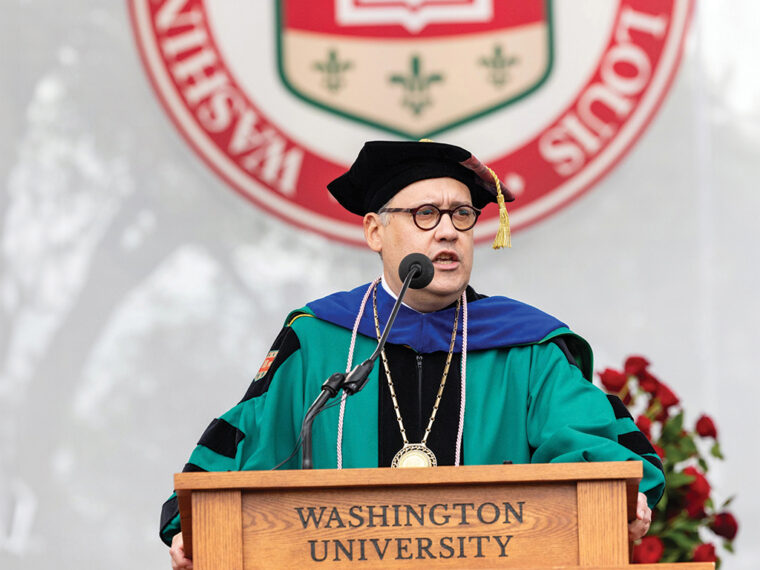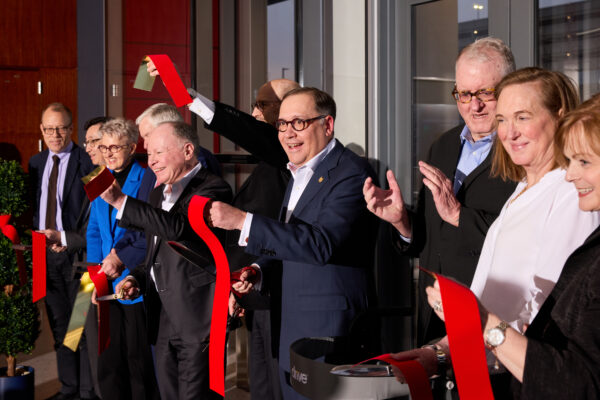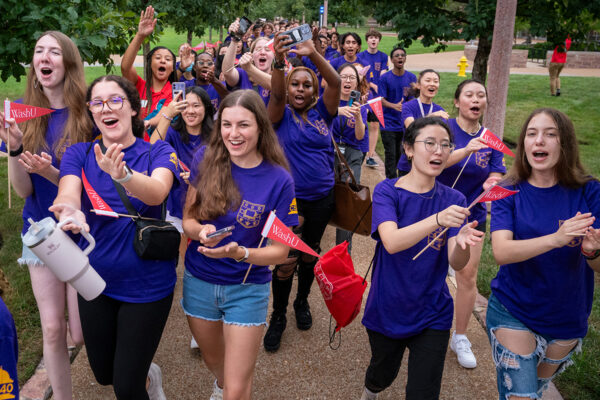In the modern world, differences of opinion too often threaten to tear us apart. We are becoming ever more polarized in our politics, and segregated from those who might think, believe or behave differently from ourselves. The most pressing social issues of our time are also the ones that we struggle to discuss with people who hold opposing views. Yet, we cannot find solutions if we do not openly address our problems, and we cannot forge compromises if we have no tolerance for alternate perspectives.
As WashU prepares its students to become critical thinkers and inspiring leaders, we have come to see that effective listening and respectful engagement are critical to navigating difficult conversations. This approach formed the basis for WashU to develop its Dialogue Across Difference program, which launched last year and will continue to expand this year. The program, informally known as DxD, offers not only an array of courses for credit but also a series of workshops and events that promote thoughtful discussion around difficult and divisive subjects, such as gender, politics, race and faith.
Listening is an essential skill that we must learn and develop in our pursuit of intellectual inquiry and free speech. WashU has grown beyond its St. Louis roots to become a global campus, with a student body that represents more than 110 countries. The vast variety of lived experiences represented by the students on this campus can enhance their peers’ intellectual growth and development — or it can become one more way for students to segregate themselves into the age-old categories of “us” and “them.” We cannot live in fear of what divides us. In fact, intellectual curiosity demands that we explore it. DxD strives to teach students not only how to listen but also how to speak in ways that promote mutual understanding and civil discourse.
“As an institution, we remain committed to combating hate, fostering religious literacy and tolerance, and upholding the vital principles of equity, inclusion and human dignity.”
Chancellor Andrew D. Martin
Nor is this a purely intellectual exercise. Our graduates emerge into an ever-more global business environment, where they will likely work with colleagues from all over the world. Research has shown that diverse perspectives lead to innovations and breakthroughs, and that companies with greater diversity typically outperform their peers in profitability. Such results don’t happen by accident, or merely by putting different kinds of people in a room together. Rather, companies that benefit from diversity also tend to reflect environments where an employee’s individuality is viewed as a strength, and where an environment of trust allows for discussion, debate and differences of opinion.
WashU has its own difficult topics to examine and discuss, including the recent protests over the war in Palestine and historical questions about the university’s role in treatment of marginalized communities. As an institution, we remain committed to combating hate, fostering religious literacy and tolerance, and upholding the vital principles of equity, inclusion and human dignity.
I invite you to learn more about the work of the DxD program as well as the WashU & Slavery Project in this issue of Washington. I hope both articles demonstrate how the university is grappling as an institution with our past, and how we are trying to better equip our students to hold the difficult conversations of today and the future.



